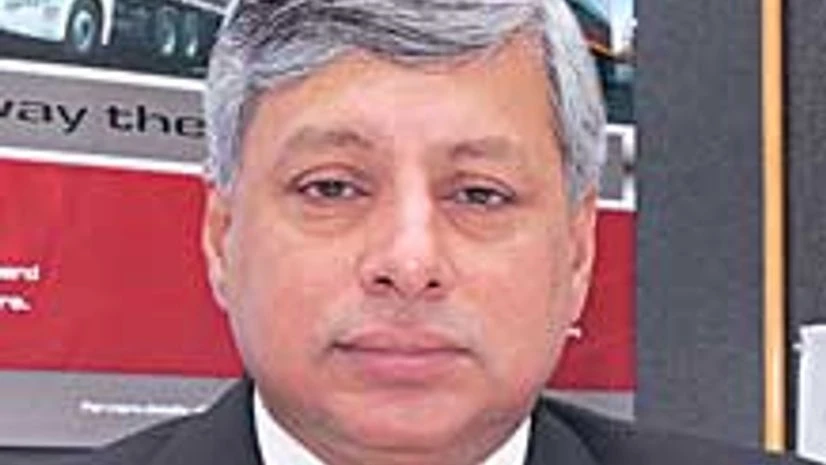Sales of commercial vehicles have persistently declined in India over two years. Ravi Pisharody, executive director (commercial vehicles), Tata Motors, tells Sharmistha Mukherjee and Surajeet Das Gupta the company will continue to invest in products to grow volumes once the market rebounds, while enhancing their international presence to de-risk the business. Edited excerpts:
Tata Motors is overhauling its entire portfolio and launching new products under the HorizonNext programme. What is the philosophy that is guiding the development of these vehicles?
We are now taking our Horizonext strategy ahead. There are three themes underpinning our commercial vehicle launches – design, performance and fuel efficiency. We are reinforcing our product focus to introduce commercial vehicles that bring the global styling aesthetic matched with enhanced comfort and productivity and are also continuing with the long-term commitment towards clean fuel alternatives. We have showcased the Magic Iris Electric at the auto show. It is a small six-seater commercial vehicle with a solar panel mounted on the roof for additional charge. It runs 60 kms on single charge and can be introduced any time now. But the biggest role of hybrid vehicles, I see, is in city buses because of the pollution which gets created.
You have showcased 18 new vehicles/concepts across passenger and CV segments at the auto show. The decline in the CV segment has been particularly protracted. Are you seeing any green shoots in the industry, given the launches you have planned for the year?
More From This Section
The CV business is known to be cyclical. Particularly in the medium and heavy CV segment (MHCVs), the amplitude of
swing is very high. But if you look at the compound annual growth rate, the trend line has grown 10 per cent over recent years. This time, the slowdown has been fairly prolonged. It is difficult to say when the industry would turn around, given the uncertainties in the economic and political situation. The slowing of reforms is adding to the problem. But mid to long term, growth will return.
What initiatives have you undertaken to address production and cost issues during the downturn?
We have responded very quickly to the slowing. We have cut on personnel and production, and reduced supplies. In the short term, we are focusing on cost cutting, being frugal and controlling discretionary expenditure. We watch closely and ensure inventory at the dealers’ end does not go beyond 30-35 days. We do our business in cash and work on credit only with the government; even then, we limit credit facilities to 60-90 days.
Long term, we are all confident the inherent strength is there in the industry; India is a very under-penetrated market. We are continuing to invest in development of products. They are at the heart of any growth story.
Is there any demand from the government for buses, given the fiscal condition?
There is demand for new-age buses from state governments. They all want to buy but do not have the money. We are working with the Delhi government and have delivered 2,500 buses. Of these, 200 have been given to private operators and are being run on a public-private partnership. We are also supplying around 400 connector buses to Delhi Metro Rail Corporation for arterial services from metro stations.
Given the slowing in the domestic market, are you increasing the focus on those abroad, to diversify business risk geographically?
Our foreign sales come mostly from markets in South Asia and Africa. We have an assembly facility in Thailand and would soon be entering fringe markets in Vietnam, the Philippines and Cambodia. We sell around 50,000 CVs out of India. We are looking at trebling this to 150,000 units over the next three to four years.
Tata Motors has been vocal in its stand against the quadricycles. But now that the policy for this category of vehicles is close to being cleared, are you reconsidering the introduction of a product is this segment?
The Indian market does not need quadricycles. If four-wheelers, irrespective of the category, get the same permit as are given to three-wheelers, then operators would have choice of more safer vehicles. We think legislative issues such as permits should not create demarcation in this manner. Permits should be there for all vehicles and then the operators can choose the better product.

)
